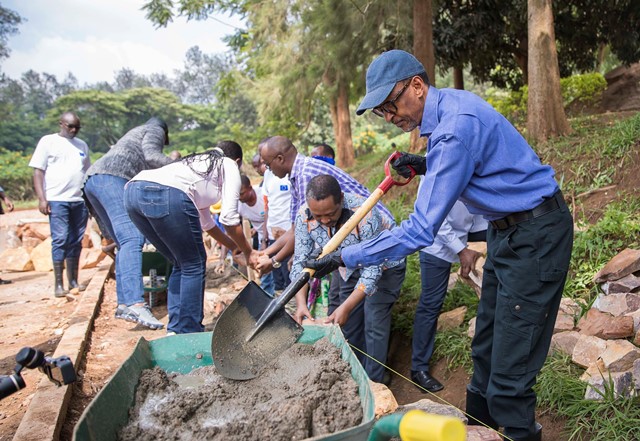Introduction
In Rwanda, the last Saturday of each month is reserved for “Umuganda,” a national day of community service where citizens come together to work on public projects. This tradition, deeply rooted in Rwandan culture, plays a significant role in environmental conservation and community development.
Origins and Evolution of Umuganda
The term “Umuganda” translates to “coming together in common purpose to achieve an outcome” in Kinyarwanda. Historically, it was a traditional practice where community members would assist each other in tasks like farming or building homes. In 1998, the Rwandan government institutionalized Umuganda as a monthly national service day to promote unity and development.
Structure and Participation
Umuganda takes place on the last Saturday of every month from 8:00 AM to 11:00 AM. Participation is mandatory for all able-bodied citizens aged 18 to 65, with penalties for non-compliance. Activities are organized at the local level, focusing on community needs such as road maintenance, tree planting, and cleaning public spaces.
Environmental Impact
Umuganda has significantly contributed to Rwanda’s environmental conservation efforts. Regular activities include:
- Tree planting to combat deforestation and soil erosion.
- Cleaning public spaces to reduce pollution.
- Constructing terraces to prevent landslides.
These collective efforts have led to notable improvements in Rwanda’s environment, contributing to the country’s reputation as one of the cleanest in Africa.
Social and Economic Benefits
Beyond environmental gains, Umuganda fosters social cohesion and economic development. It provides a platform for community members to collaborate, discuss local issues, and strengthen social bonds. Economically, the value of work done through Umuganda from 2007 to 2016 was estimated at over $127 million.
Challenges and Adaptations
While Umuganda has been successful, it faces challenges such as ensuring consistent participation and adapting activities to urban settings. Efforts are ongoing to make Umuganda more inclusive and to integrate modern technologies to enhance its effectiveness.
Global Recognition and Replication
Umuganda has garnered international attention as a model for community-driven development. Its success in promoting environmental stewardship and social cohesion offers valuable lessons for other countries seeking to implement similar initiatives.
Conclusion
Umuganda exemplifies how traditional practices can be harnessed for modern environmental conservation. By uniting communities in service, Rwanda has created a model for grassroots environmental stewardship that other nations might emulate.

